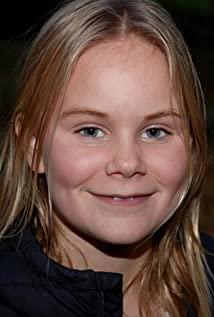The little girl really likes Lucas, and she knows the nature she likes, and the nature of her lie and the direct consequences: Lucas is considered a bad person, and she can have the nature she wants in this lie. connect. This method is not uncommon. What is rare is that she is too young. If she is not five years old but fifteen or twenty years old, it can be a different kind of story. Maybe it’s quite romantic, but now it’s almost Lucas alone. Tragedy.
The little girl got some vague information about sex from her brother who watched pornography, and perhaps parents who casually had sex in the living room. There were details of sexual behavior, but also a vague sense of shame and guilt. She used this information to She is connected with her admiring teacher. According to Freud, a five or six-year-old girl is in the Electra period and wants to replace her mother as her father's partner. Her parents don't care enough for her, so she transfers her complex to the teacher who understands her and cares for her. Lucas certainly did not take her courtship seriously, so she fabricated that the teacher violated her. This scene can not only transfer the shame of rejection and the shame of sex itself to the teacher, but also satisfy her imagination of him. So far, there will be no harm, but she chose to express this imagination. I think she probably knows that her words will be taken seriously, and knows clearly that these words will hit Lucas. ——If she is a teenager, this motive will be easy to understand.
When other adults really took it seriously and asked her to check it sentence by sentence, she found that the consequences might be more serious than she thought, "big things". She didn't know what adult society thought about it, but she could feel that there would be very serious consequences on Lucas-or on her if she confessed that she was lying. "Lucas is an adult, and I'm still young, so it's nothing to make him wronged. "Maybe she just thought that at first.
Later she witnessed the more serious consequences. She told the truth, but her mother didn't believe it, which was good, at least she could escape the punishment of lying. She didn't insist. Just let them believe what the adults are willing to believe.
I remember an experiment in child psychology not long ago that overturned a certain claim made by Piaget. Piaget’s original experiment was like this: Arrange five balls in a row, five squares in a row, one by one, and ask the children (about four or five years old) "Which is more?" Children's Answer: The same amount. Then increase the spacing of the squares so that the length of the row is greater than that of the spherical row, and then ask "Which one is more?" The child's answer: There are more squares. Based on this, Piaget concluded that children of this age are not yet able to distinguish the difference between the amount of space and the amount of space. This conclusion has always been considered authoritative, but in an experiment that overturned the conclusion, the staff replaced the spheres and squares with food, and the food-eating children immediately gave correct answers. The real situation is: children at this age have learned to figure out the intentions of adults, while the younger group (about two or three years old) has not learned to cater to adults. Their answer is honest: the same.
Generally speaking, we will assume that she has guilt, but maybe she really doesn't, or she has it, and it's quite weak. She likes Lucas, and she hopes that she can influence him, that is, use lying and frame, where she sees and can't see (of course she can imagine), he is still connected with her. Even better, he can’t hate her, because she is still young, so he has to forgive her, he will forgive her, she can also pretend that she doesn’t know, doesn’t know, or has forgotten. It’s too easy for her to get through. The adults believed her so easily, and he believed her so easily.
Within a certain range, the little girl understands everything. She knows that her answer will make her parents hate him, and the kindergarten teachers will hate him. Other friends' statements will reinforce this point. She sees this as a game against him. Since he didn't want her, she used her own way to play with him at almost no cost, otherwise she would lose him. If there was no such thing, he would still treat her well, but that was not what she wanted.
She saw his anger in the church. At this time, she should have regretted it, because the scene was beyond the knowledge of her infant, and it was difficult for the protected child to know how the adult suffered. She told her father the truth again, but in her little heart, regrets were limited, because she could not understand the seriousness of the truth, she just vaguely felt: I was wrong, and now I told the truth, this Enough to compensate. ——They will take care of everything else.
The adults did take care of everything, she was not blamed, and she didn't need to pay any price. She quickly forgot, she only remembered that she liked Lucas, and could be willful, and he would tolerate her willfulness. She forgave his refusal-but it was because she gave up the Electra complex, or because at least she knew subconsciously that she had greatly influenced him and was able to do something to him afterwards, which is hard for me to say. She is a precocious little girl. A five-year-old girl may have sexual fantasies, but I don't know if she will always remember what she has done and how she loves her teacher. (Speaking of which, judging from some domestic works, those male authors generally retain their fantasy of female kindergarten teachers until adulthood, maybe even a little girl.) The
director can take a follow-up after ten years, if in the setting If Lucas can live to that time, the plot will be terrible, but it should look like a serious shot. I rarely watch movies, and I usually don’t score five stars. It’s still because of Mads. But this is a good movie, because I can focus on the plot and won't stare at him.
Denmark is one of the countries ranked first in the world's happiness index. This background is really more sci-fi than sci-fi. The film that reflects the lives of ordinary people still recommends Iran's "A Farewell". As a developing country, that film feels more personal. As well as the issue of child sexual harassment, in China, this is not taken seriously. When will we have a movie that takes this seriously, this is a big step forward on the road of civilization. As for children lying or something, before children were treated as adults, this problem was too high for us. Now we dare not face even parents lying or the government lying.
PS
I think of "I want to fall in love with the teacher but the teacher does not agree, so he framed the teacher for sexual assault". Why is the plot so familiar? The 14-year-old gay female student in "Norwegian Forest" said, "Who would have thought that such a beautiful child would lie? What?" Teacher Reiko was admitted to the mental hospital because of this. If Klara wanted to, she could do it again in ten years, and she would surely be able to force Lucas into the mental hospital.
View more about The Hunt reviews











